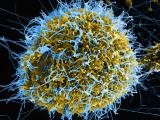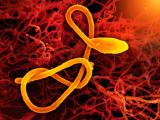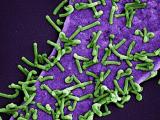The new Ebola outbreak in the Democratic Republic of the Congo (DRC) is taking place in a war zone with difficult access, among other challenges, Peter Salama, MD, the World Health Organization's (WHO's) deputy director-general of emergency response, said in a telebriefing today.
While only four Ebola cases have been confirmed, Salama said there are 20 deaths near the town of Mangina that were possibly caused by the virus. So far 10 locations near Mangina have been identified as having possible cases.
"It's extremely likely that the it's Ebola-Zaire," said Salama, echoing the DRC's ministry of health's assessment of the species causing the illnesses. Salama said a full genetic analysis of samples will be available next Tuesday.
What is known is that on Jul 28 in North Kivu province, a suspicious cluster of cases and deaths alerted DRC officials, who began to collect samples. The inciting incident, Salama said, was a woman who visited a local hospital for an illness in late July.
"As she was leaving the hospital after being treated for another ailment, she started getting a fever and other symptoms of Ebola," Salama said. The woman died, and seven of her relatives developed similar symptoms. Salama also said a healthcare worker has died in this outbreak, but it's unknown if that person treated the woman.
Different outbreak, different challenges
While it cannot be ruled out, Salama said there's no evidence to suggest this outbreak is related to the one that ended on Jul 24. That outbreak took 33 lives on the western side of DRC.
The Equatorial rainforest, which reaches across DRC, provides a reservoir for the Ebola virus. Most often, the virus jumps from animals to humans through fruit bats, or the consumption of raw or partially cooked bush meats. The Zaire species of the virus is the most deadly to humans, with a case-fatality rate usually near 50%.
Salama said the current outbreak will be an extremely challenging one for the WHO and the DRC to fight because of location. Rebel fighters populate the region, which is home to 1 million displaced people. Unlike the outbreak this spring, health workers will not be able to cross rural expanses on motorcycles or easily reach communities because of safety issues.
"This is a war zone, and the one very serious complex factor is security," Salama said. "Access will be the biggest challenge."
If genetic analysis proves definitively that the virus is the Zaire species, Merck's unlicensed vaccine is expected to be used in a ring vaccination, as it was in the previous DRC outbreak, which was just declared over. According to Salama, there are 3,000 doses of VSV-EBOV vaccine immediately available, and 300,000 more doses can be mobilized in short notice.
The DRC also published an update yesterday, confirming that the minister of health, Oly Ilunga Kalenga, MD, visited Beni and Mangina. A mobile lab is being set up in Beni.
See also:
Aug 2 DRC update


















